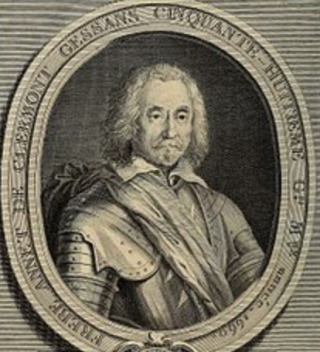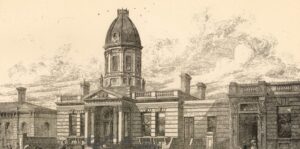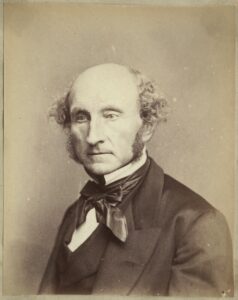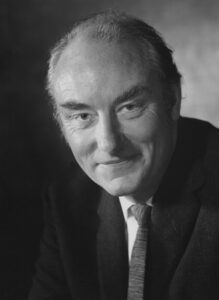

I have been the more bold in exposing my opinion because I believe it to be the dictates of truth and right reason and that truth is most conducive to the happiness of mankind: this I believe because I feel that error and falsehood tends to man’s unhappiness… Banish truth, and you banish sincerity and honesty… banish Liberty, and what will follow, but tyranny.
Peter Annet, Preface to Supernaturals Examined: in four dissertations on three treatises (1740s)
Peter Annet was a schoolmaster, deist, and freethinker who spoke out against various Christian apologists of the 18th century, and advocated a rational examination of the Bible and the Christian religion. Influenced by earlier deists and political thinkers, such as the theologian Thomas Woolston and the French Enlightenment writer Voltaire, Annet became one of the most radical thinkers of his time. He has since been viewed as a bridge between these earlier thinkers and later polemicists such as Thomas Paine, and his own fearless scepticism towards supposed revelation – as well as his emphasis on human happiness – forms a key part of Enlightenment humanist heritage.
We are here met together to converse freely with each other, and by this free conversation and reasoning to find out truth. This is a lovely motive, and should therefore, however we may differ in our opinions, be a means to promote respect and affection for each other.
‘The Introductory Lecture’ in Lectures on the following subjects… by the late Mr Peter Annet, corrected and revised by him just before his death (c. 1769)
Annet was born in Liverpool sometime around the year of 1693, but little else is known of his early life. Although he trained as a minister for a nonconformist church, he would become a schoolmaster. Annet’s first published pamphlet of 1739, Judging for Ourselves: Or Free-Thinking, the Great Duty of Religion, set the tone for his future work. In it, he asserted that: ‘If the Scriptures are Truth, they will bear Examination; if they are not, let ’em go.’ Annet was committed to examining the Bible carefully, and unperturbed by the prospect of dismissing large swathes of it as reason required.
Over the course of his future work, Annet went on to make similar claims to those of other deists and freethinkers. He rejected the possibility of revelation and of miracles. Specifically, in his first prominent addition to the deist discourse, The Resurrection of Jesus Considered by a Moral Philosopher (1744), Annet asserted that the resurrection of Jesus could not possibly have taken place. He used subsequent works to develop his arguments, including The Resurrection Reconsidered, The Resurrection Defenders Stripped of All Defence, and The Resurrection of Jesus Demonstrated to have No Proof.
Alongside his targeting of the resurrection, Annet gained a reputation for attacking various members of the orthodox ecclesiastical hierarchy. The Bishop of London, Thomas Sherlock, was perhaps his most notable target. The Resurrection of Jesus Considered, for example, was a direct response to Sherlock’s Tryal of the Witnesses of the Resurrection (1729). These biting attacks and his sarcastic and direct tone quickly painted a target on Annet’s back.
Annet’s controversial opinions led to the loss of his schoolmaster post in 1744. He operated as a successful lecturer thereafter and continued to write. He also became a prominent member of the Robin Hood Society, a freethinking debate club. Not all approved of Annet’s tone. The novelist and playwright Oliver Goldsmith, who also attended Robin Hood Society meetings, is reported to have commented that Annet was ‘a man, who, though ingenious and deserving in other respects, became unhappily notorious by a kind of fanatic crusade against the Bible…’.
In his journal, The Free Enquirer (nine numbers of which were published between October–December 1761), Annet mounted attacks on Old Testament stories. For this, he finally faced the full force of the law, charged with blasphemous libel and sentenced to a month’s imprisonment in Newgate, a year of hard labour in Bridewell, and to stand twice in the public stocks. Now in his 70s, this harsh punishment devastated his physical health. After his time was served, Annet returned to being a schoolmaster and continued to write until his death in 1769.
How can a lover of truth come to the knowledge of it, if he cannot bear to have his sentiments examined with candor? And how can a man expect his own should be treated friendly, who cannot candidly treat his brother’s? This is highly necessary; for if men do not learn this, how can men of different principles be united by virtue? and of what consequence is virtue, if it will not produce such union among men?
Peter Annet in Lectures on the following subjects… by the late Mr Peter Annet, corrected and revised by him just before his death (c. 1769)
In his entry for Annet in the Dictionary of National Biography, founding figure of the Ethical movement Leslie Stephen concluded:
Annet’s writings are of some interest as forming a connecting link between the deism of the early part of the eighteenth century and the more aggressive and outspoken deism of Paine and the revolutionary period. He is a coarse but forcible writer.
In Annet’s emphasis, however, on the right to question, the importance of truth, and the pursuit of happiness, his writings retain an interest for humanists today – just as they did for those of the 19th and 20th centuries. Through his insistence on the importance of liberty and free discussion, Annet also earned his place in the history of defending the freedom of thought and belief, a cause taken up by many fellow humanists and freethinkers.
In his last published work, revised shortly before his death, Annet sounded a distinctly humanist note, writing:
…that appearance of things which best agrees with every one’s experience, is his best guide in judgement and action, if it conduce to the main point, man’s peace and mutual happiness.
Peter Annet | Oxford Dictionary of National Biography
Works by Peter Annet | The Internet Archive
The Enlightenment | The British Library
Lecture 13: Thomas Chubb and Peter Annet | University of Oxford podcasts
By Matilda Smith

He was the people’s First Minister, and this is a people’s ceremony. He wouldn’t want heavy mourning. This is a […]

Without denying or affirming a life after death, or reality beyond experience… we can (without injury to our moral life) […]

I will call no being good, who is not what I mean when I apply that epithet to my fellow-creatures; […]

Francis Crick discovered the structure of DNA, the biological molecule of hereditary information, and cracked the genetic code by which […]